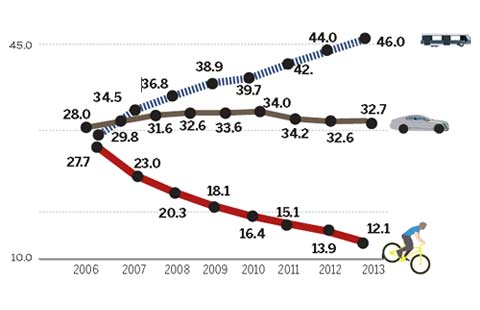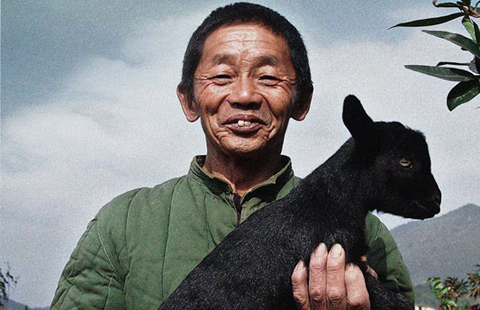Their deaths are as light as a feather
Updated: 2014-09-24 08:49
By Zhu Yuan(China Daily)
|
|||||||||||
 Repeated reports about officials committing suicide remind me of late chairman Mao Zedong's division of death into two kinds: those that weigh even heavier than a mountain and those that are as light as a feather. The suicides of most officials should belong to the latter if they did it simply because they were scared of being investigated about their alleged corruption or because they wanted to prevent others from being revealed.
Repeated reports about officials committing suicide remind me of late chairman Mao Zedong's division of death into two kinds: those that weigh even heavier than a mountain and those that are as light as a feather. The suicides of most officials should belong to the latter if they did it simply because they were scared of being investigated about their alleged corruption or because they wanted to prevent others from being revealed.
The pity is very few of them have left behind any words about what was on their minds before they took their own lives. Did they regret their abuses of power or did they just curse the bad luck of being caught?
But one thing is certain: they did not anticipate what they would do to their own lives when the free will to wield power deprived them of the lucid perspective to look at life. Another thing is that they know little about death, and that they did not even ever think of "the world of malady" although they took it as the last solution to their problems.
The Chinese translation of Mortality, a book by Christopher Hitchens, may be a good read, for officials in particular, as a way to know something about death and the right attitude toward life. It is about the writer's fight with the angel of death in a battle that we will all have to lose at one time or another.
In a sense, the death Christopher Hitchens died may be worth being listed among the first type Mao described, that is: one as heavy as a mountain. As an essayist, he was described as a predator drone, obliterating his subjects without mercy in his essays for Vanity Fair. He called Princess Diana a "disco-loving airhead," described George W. Bush as "abnormally unintelligent" and Henry Kissinger as a "war criminal". He was an atheist.
He never stopped writing until his esophageal cancer made him unable to do so. The voice has gone, but his words remain telling us how this courageous man fought in the world of malady.
Imagine that the corrupt officials who committed suicide were given this book before they killed themselves, they might have felt ashamed of themselves and of their notion of escaping the punishment they deserved by taking their own lives.
As the essayist Susan Sontag wrote in her book, Illness as Metaphor: "Everyone who is born holds dual citizenship, in the kingdom of the well and in the kingdom of the sick. Although we all prefer to use only the good passport, sooner or later, each of us is obliged, at least for a spell, to identify ourselves as citizens of that other place."
Today's Top News
President Xi reassures HK of stability
Russia taps China for meat
China vows $6m for climate plan
Should Beijing help fight IS?
Let Mideast people solve their region's problems
Iraq situation demands China to engage
Ukrainian troops, rebels start creating buffer zone
China, US seek ways to benefit from carp
Hot Topics
Lunar probe , China growth forecasts, Emission rules get tougher, China seen through 'colored lens', International board,
Editor's Picks

|

|

|

|

|

|





